PHP Image Crawler
Read more at https://www.phpclasses.org/package/11600-PHP-Crawl-Web-site-pages-to-find-images-in-the-pages.html#2020-04-04-20:17:00
Smart Interface Design Patterns Checklists PDF – Use this set of checklists to ensure that you’re creating smart design patterns.

How to Create an Emergency Message UI in WordPress – Add an attention-grabbing emergency message to your website that can be turned on or off with a click.

colors.lol – Dive into this “overly descriptive” collection of color palettes.
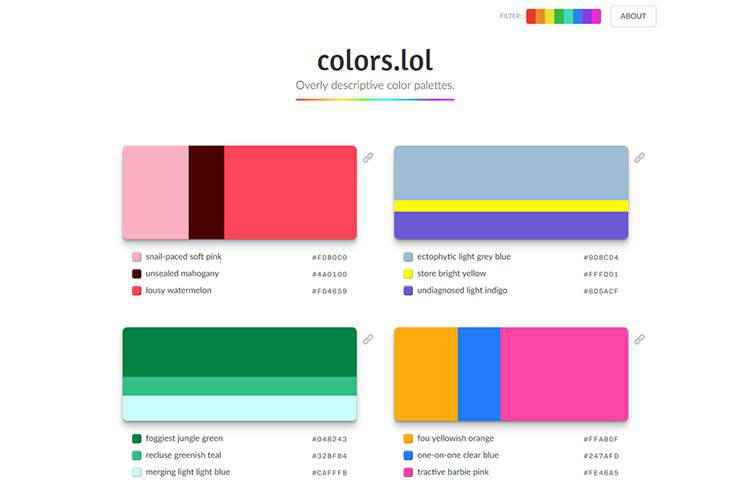
Styling Scrollbars with CSS: The Modern Way to Style Scrollbars – Finally, a viable way to style scrollbars across multiple browsers.
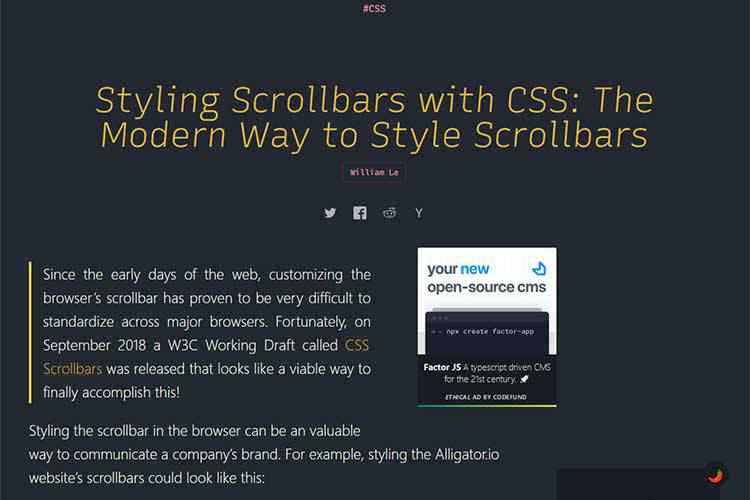
Emergency Website Kit – A free static boilerplate you can use to quickly serve vital information in an emergency.
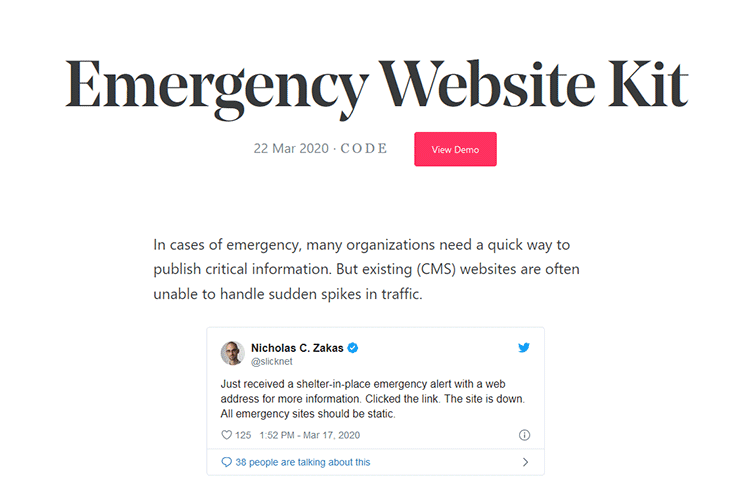
How to read RSS in 2020 – A modern look at the still-useful technology.
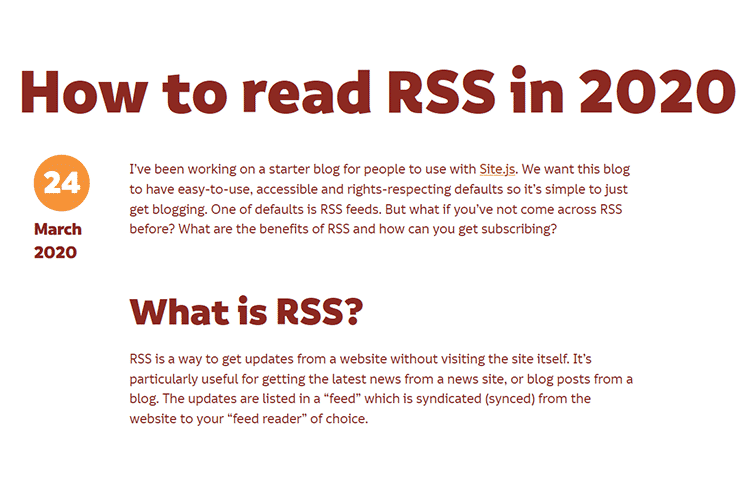
UX myths to forget in 2020 – Debunking some common themes around UX.

10 Best Adobe After Effects Titles Templates – Set the tone for your video project with these outstanding titles.

Animated Custom Cursor Effects – Create compelling effects with SVG filters.

20 Beautiful & Free Resume Templates for Designers – Get the attention of your next employer with these stunning resumes.

Neomorphic Travel UI Kit Free – A free, trendy UI kit for Figma.

The 50 Best Free Icon Fonts for UI Design – Spice up your designs with these free font icon offerings.

Quick and simple image placeholder – Use this tool to generate colorful image placeholders.
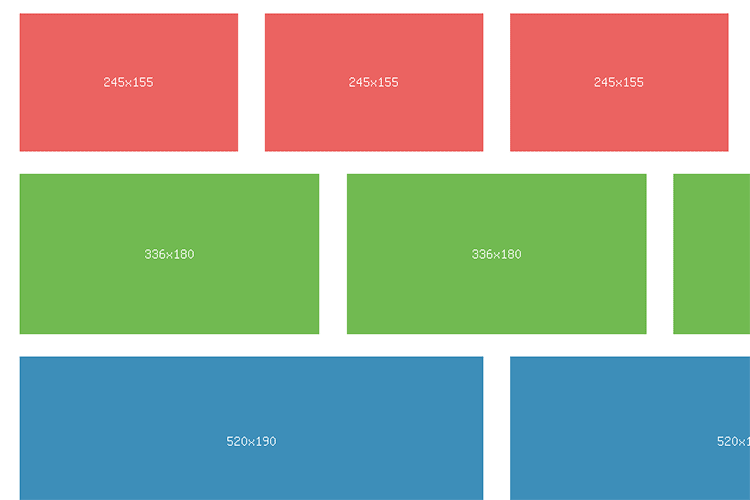
Four Definitions of Design – Getting the “bigger picture” of what design really is.
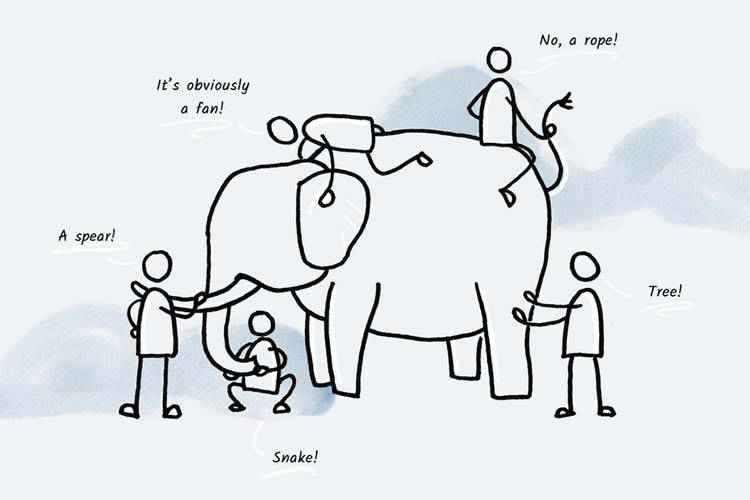
Hook: Free Dark HTML Template – Get your “dark mode” on with this free template kit.

The post Weekly News for Designers № 534 appeared first on Speckyboy Design Magazine.
The month of March was both a tough and exciting time for the WordPress open-source project. With COVID-19 declared a pandemic, in-person events have had to adapt quickly – a challenge for any community. March culminated with the release of WordPress 5.4, an exhilarating milestone only made possible by dedicated contributors. For all the latest, read on.
WordPress 5.4 “Adderley” was released on March 31 and includes a robust list of new blocks, enhancements, and new features for both users and developers. The primary focus areas of this release included the block editor, privacy, accessibility, and developer improvements, with the full list of enhancements covered in the 5.4 field guide.
Want to get involved in building WordPress Core? Follow the Core team blog, and join the #core channel in the Making WordPress Slack group.
It’s been another busy month for Gutenberg, this time with the release of Gutenberg 7.7 and 7.8. Gutenberg 7.7 introduced block patterns – predefined block layouts that are ready to use and tweak. This is an important step towards Full Site Editing, which is currently targeted for inclusion in WordPress 5.6. As a first iteration, you can pick and insert patterns from the Block Patterns UI, which has been added as a sidebar plugin.
Gutenberg 7.7 also includes a refresh of the Block UI, which better responds to the ways users interact with the editor. For more information on the User UI and Block Patterns, read this summary of the most recent Block-Based Themes meeting. Gutenberg 7.8, introduced on March 25, further enhanced this Block UI redesign. Both releases also included a suite of improvements, bug fixes, new APIs, documentation, and more!
Want to get involved in building Gutenberg? Follow the Core team blog, contribute to Gutenberg on GitHub, and join the #core-editor channel in the Making WordPress Slack group.
In early March, the Community team issued new recommendations for event organizers in light of growing concerns around COVID-19. Following this guidance, and with COVID-19 declared a pandemic, WordPress community organizers reluctantly but responsibly postponed or canceled their upcoming WordCamps and meetups.
As community events are an important part of the WordPress open-source project, the Community team made suggestions for taking charity hackathons online, proposed interim adjustments to existing community event guidelines, and provided training for online conference organizing with Crowdcast. The team is currently working on building a Virtual Events Handbook that will continue to support WordPress community organizers at this time.
Want to get involved with the WordPress Community team, host your own virtual WordPress event, or help improve the documentation for all of this? Follow the Community team blog, learn more about virtual events, and join the #community-events channel in the Making WordPress Slack group.
Last month, an experimental feature was added to Trac, WordPress Core’s bug-tracking system, to improve collaboration between Trac and GitHub. This month, to help make tracking contributions to the WordPress project across multiple locations easier, there is a new option to connect your GitHub account to your WordPress.org profile. This connection allows for more accurate acknowledgement and recognition of contributors. You can connect your GitHub account to your WordPress.org account by editing your WordPress.org profile.
For more information and instructions on how to connect your accounts, read the announcement post.
Defined coding standards is an important step in creating the consistent codebase needed to prepare for requiring PHP 7.x for WordPress Core. As such, coding standards have been proposed for implementation in WordPress Coding Standards 3.0.0. This includes new proposed standards for namespace declarations, import use statements, fully qualified names in inline code, traits and interfaces, type declarations, declare statements/strict typing, the ::class constant, operators, and more.
Want to get involved or view the full list of currently proposed new coding standards? Visit and add your feedback to the post on updating the Coding standards for modern PHP and follow the Core team blog.
Have a story that we should include in the next “Month in WordPress” post? Please submit it here.

A new SQL database server has been added to the Free Database Libraries and SQL Servers page. This one is column-oriented, potentially increasing its performance (over the usual row-oriented database management systems).
